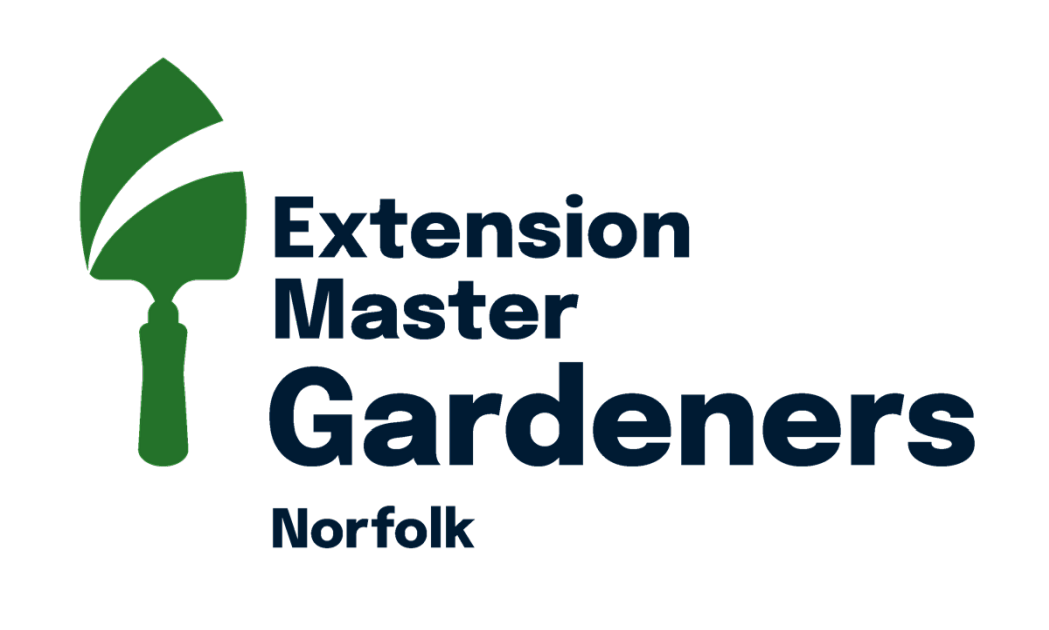Wasps: Your Yard, Garden, and Landscape Friend
“It is not going to hurt you. They are friends.” This is a phrase I use often when discussing
wasps, and it is usually met with horrified looks. People frequently share stories about wasps
being aggressive or about times they were stung. I patiently listen, often commenting that when I
have been stung, it was usually my fault. Then, I will share a few teaching moments from my
life.
My Experience with Wasps
I owned a house in Kansas City, MO, with an amazing walkout basement where I stored all my
gardening supplies. Shortly after purchasing the house, a small red paper wasp nest began to be
built in the upper corner of the basement doorway. I left it alone, and the nest grew. Initially, the
wasps scattered and flew around whenever I opened the door. I would wait for them to calm
down before passing through. Over time, their behavior changed; they went from flaring their
wings at me to completely ignoring my presence by the end of the summer. I left the nest each
year, and never once was I stung. Eventually, with each passing generation, they stopped
showing any aggression towards me and even helped eliminate garden pests, a benefit I
will discuss later.
When I moved back to Oklahoma, I lived in a duplex with a bay window facing the street.
Shortly after moving in, a yellow jacket began building a nest against the window. I enjoyed
watching the nest and observing the larvae hatch and grow. My neighbor, who had children, was
understandably concerned since yellow jackets are more aggressive. We discussed it and turned
it into a teaching moment for my neighbor, their children, and eventually all the children on the
street. Soon, curious children and adults were visiting to watch the nest grow and observe the
larvae inside. We all learned about the benefits of these wasps and how they ignored us. It was
a wonderful, educational experience for the neighborhood. In winter, I removed the nest to
prevent next year’s queen from returning to the same spot.
The Benefits of Wasps in Your Garden
In Kansas City, I left the wasps for a particularly important reason. I had a large garden, and with
any garden come pests. Many wasp species hunt pest insects to feed their larvae. With the red
paper wasp nest thriving in my basement doorway, my garden no longer had caterpillars
munching away at it, and many other pests disappeared as well.
In Oklahoma, I used the yellow jacket nest as a teaching tool. It was a way to show children and
their parents that people can live in harmony with even aggressive species of wasps. I was able to
demonstrate to two generations the stages of growth of this amazing invertebrate. It became a
fun, educational interaction with my neighborhood.
The Role of Wasps in Nature
Most wasps are solitary and private, typically attracted to specific prey. Social wasps, those that
live in colonies, are generalists and hunt a wide variety of insects and pests to feed their
larvae. Both types are beneficial to have in your yard.
Wasps are excellent hunters in our gardens. Some wasp species cannot sting humans but are
parasitic towards pest organisms. These parasitic wasps lay their eggs on other invertebrates.
Their larvae hatch and consume the pest organism, effectively removing pests from our valued
plants.
Wasps also serve another crucial function in nature: they are pollinators. Most adult wasps
consume nectar and pollen. While they do not have the hairs that bees do, they still inadvertently
move pollen from flower to flower as they forage (Dickerson, 2020). If you pay attention to your
flowers, you might see wasps flitting about with bees, butterflies, and moths. Many plant species
rely on specific wasp species for pollination (Brock, 2016).
Wasps in the Food Chain
An often-overlooked role of wasps is their importance in the food chain. Many bird species
consume them, as do other invertebrates such as robber flies, and some small
mammals. By poisoning these useful insects, you may inadvertently put other creatures in
danger (Lowe, 2011).
Conclusion
Wasps may have a bad reputation, but they are beneficial friends in our yards, gardens, and
landscapes. They help control pest populations, pollinate plants, and play a vital role in the
ecosystem. By understanding and respecting these fascinating insects, we can learn to coexist
with them and appreciate their contributions to our environment.
References
Brock, R. (2016, July 12). In defense of wasps: Why squashing them comes with a sting in the tale. The Conversation.
https://theconversation.com/in-defence-of-wasps-why-squashing-them-
comes-with-a-sting-in-the-tale-60729
Dickerson, L. (2020, September 8). Wasps are pollinators too. OSU Extension Service.
https://extension.oregonstate.edu/gardening/pollinators/wasps-are-pollinators-
too#:~:text=Even%20though%20they%20don’t,quite%20impactful%20to%20our%20ecosystem
Lowe, C. (2011, March 12). Things that eat wasps & bees. Sciencing.

